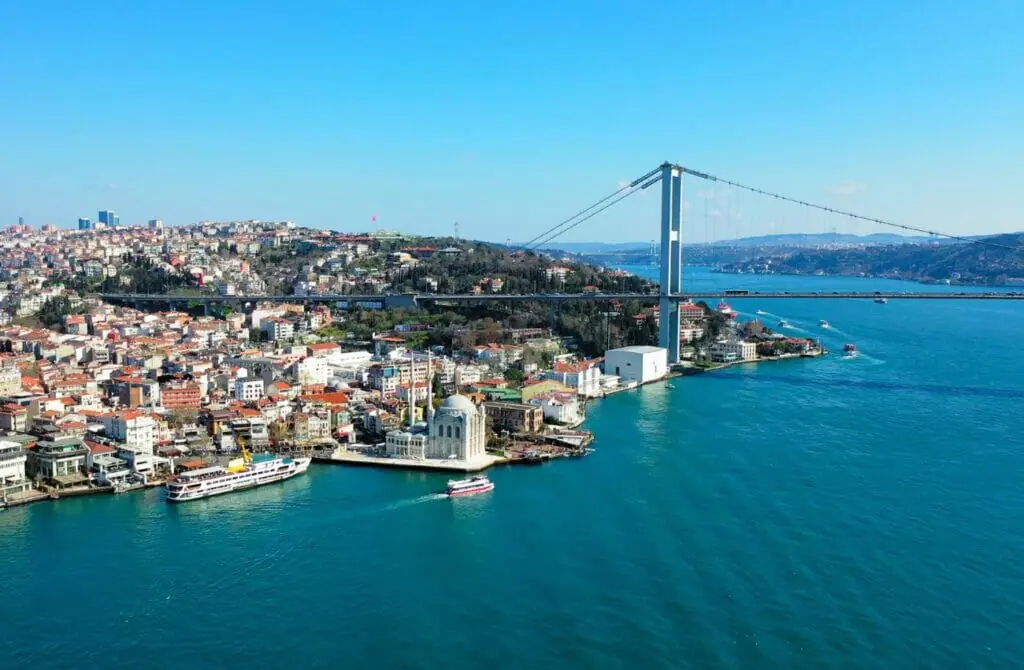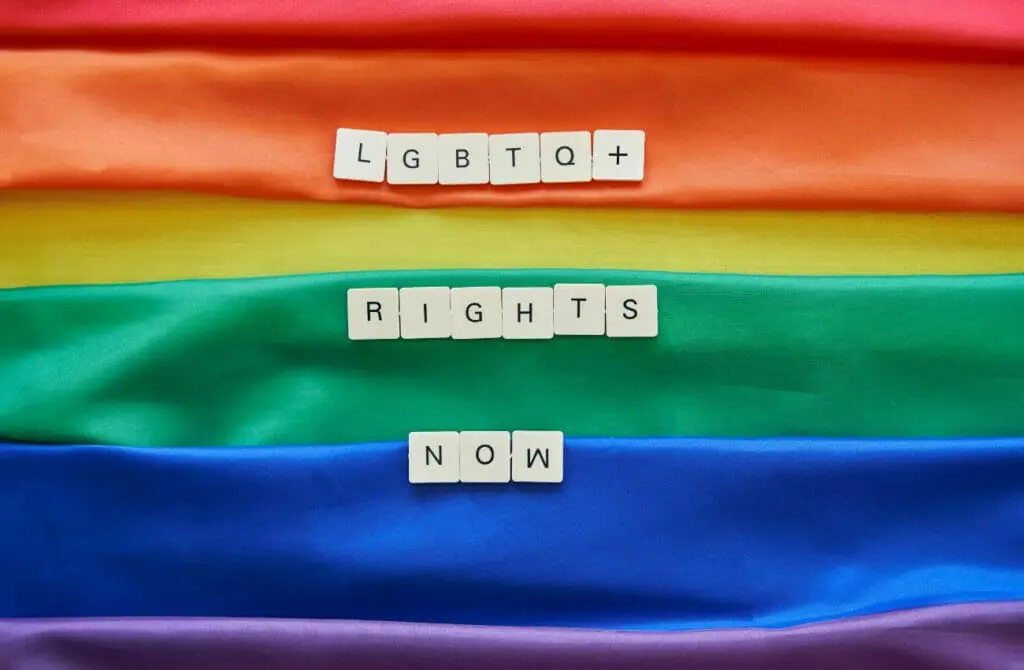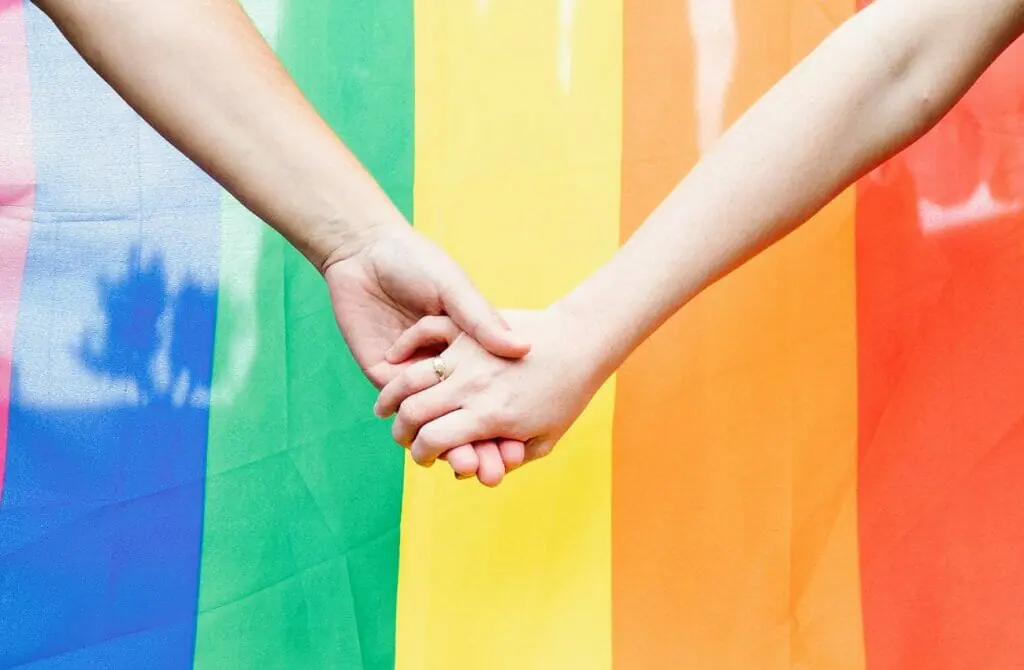LGBT rights in Turkey have a complex history and continue to face challenges in the contemporary political climate. While the Ottoman Empire, Turkey’s predecessor, decriminalized homosexuality in 1858, the current situation for the LGBT community remains concerning as anti-discrimination laws have yet to be implemented. This lack of legal protection affects the local population and LGBT tourists visiting the country.
It is crucial for LGBT individuals, both locals and travelers, to be aware of the prevailing attitudes towards the community and to exercise caution when necessary.
Although advocacy groups and NGOs, such as Human Rights Watch, are working to raise awareness and push for LGBT rights, the situation can change rapidly, and it is essential to keep up to date with the most recent information. Potential travelers should seek current advice from official sources or LGBT advocacy organizations before visiting Turkey to ensure their safety and well-being.
While the overall situation for LGBT rights in Turkey may be challenging, it is essential to remember that there are always individuals and groups working towards change, and there are safe spaces within the country. Staying vigilant, informed, and connected to local LGBT groups and resources will help ensure a safer experience for all those affected by the current state of LGBT rights in Turkey.

History of LGBT Rights In Turkey
The history of LGBT rights in Turkey can be traced back to the Ottoman Empire when, in 1858, the Empire adopted a new penal code that no longer contained any explicit articles criminalizing homosexuality, sodomy, and köçeklik (young male slave dancers). This change was influenced by the Napoleonic Code and took place during the Tanzimat period, a time of far-reaching reform in the empire.
After the collapse of the Ottoman Empire in 1923 and the foundation of the Republic of Turkey, the country’s first president, Mustafa Kemal Atatürk, introduced a number of reforms that impacted the view on gay relationships within the country. However, despite the lack of explicit criminalization, LGBT individuals in Turkey have long faced discrimination, hostility, and violence.
In more recent times, Istanbul has been the center for various Pride marches, which have unfortunately been met with significant opposition from authorities. Police have often employed tear gas, water cannons, and rubber bullets to disperse crowds during Pride events. In some cases, these events have been outright banned, citing concerns for morality and public order.
Regarding legal protections for LGBT individuals in Turkey, no specific anti-discrimination protections exist for sexual orientation or gender identity in areas such as employment, housing, or public services. Moreover, same-sex marriage and civil unions are not recognized, and LGBT individuals are not permitted to adopt children.
Transgender people in Turkey are allowed to undergo sex reassignment surgery and change their legal gender. However, they face a requirement of sterilization before the legal change can take place. This has been considered an infringement of human rights by some activists, and legal challenges have arisen to address this issue.
Kaos GL, a prominent organization that has been at the forefront of the fight for LGBT rights in the country, has played a vital role in raising awareness and campaigning for change. The organization also provides assistance and legal support to members of the LGBT community.
It is important to note that situations can change quickly, and information can become outdated. Travelers and residents alike should be vigilant, seek current advice before traveling, and be aware of potential changes in the political and social landscape that can impact LGBT rights in Turkey.
In conclusion, while Turkey has a complex history with regard to LGBT rights, local and international activists continue to campaign for increased recognition and protection of the rights of LGBT individuals.

The LGBT Legal Situation In Turkey
In Turkey, homosexuality has been decriminalized, and transgender people have been able to legally change their gender since 1988. However, there are still legal challenges, and discrimination protections have not yet been legislated fully for sexual orientation and gender identity. Same-sex marriage remains unrecognized, and same-sex couples cannot adopt children. Moreover, the age of consent for all, regardless of sexual orientation, is equal to 18.
The legal situation for LGBT individuals in Turkey affects both local people and tourists, with instances of violence, discrimination, and crackdowns on activists and protesters being reported. The Turkish authorities have used the COVID-19 pandemic to selectively ban peaceful protests organized by LGBT groups, students, and political opposition parties.
Censorship is another significant challenge for the LGBT community in Turkey. State-enforced censorship targets freedom of expression and journalists, affecting discussions around LGBT rights and causing fear of prosecution. Moreover, public events, such as the annual Istanbul Pride, have faced hostility from authorities, with police using rubber bullets and conflicting reports of violence toward participants.
While there have been notable legal challenges related to rights for the LGBT community in Turkey, some NGOs and activists, such as Kaos GL, continue to campaign vigorously for human rights, specifically calling for legislation that addresses discrimination protections. These organizations might be a valuable resource when seeking up-to-date information and current advice related to LGBT rights before traveling or considering a visit to Turkey.
As the situation can change rapidly, it is essential for both locals and tourists to remain informed and vigilant. Be mindful of potential hostility and maintain contact with relevant LGBT advocacy groups to ensure one’s safety. Furthermore, bear in mind that information regarding the legal situation of the LGBT community in Turkey can become outdated quickly, so always seek the most current advice and updates before making any decisions.


The LGBT Social Situation In Turkey
In Turkey, the social situation for LGBT individuals remains complex and challenging. Despite homosexuality being decriminalized in the 19th century, which set Turkey apart from many other Muslim-majority countries, legal protections against discrimination are lacking, and social acceptance remains limited.
Members of the LGBT community in Turkey continue to face discrimination, hostility, and even violence due to their sexual orientation and gender identity. Public opinion on LGBT rights can be conservative, with many non-LGBT residents harboring homophobic attitudes.
The situation is more difficult for transgender individuals who are subject to specific regulations and requirements before being allowed to change their legal gender. These may include undergoing sex reassignment surgery and sterilization.
The Turkish authorities have not been very supportive of LGBT rights, as seen in the police crackdown during Pride marches and other public events celebrating LGBT issues. The use of tear gas, rubber bullets, and detaining activists are some common occurrences during protests. Discrimination in areas such as employment affects many gays and lesbians in the country. Besides, same-sex couples are not allowed to adopt children or legally marry.
In recent years, the ruling Justice and Development Party (AKP) has taken various hostile actions against the LGBT community. This has raised concerns among Turkish LGBT rights organizations, such as Kaos GL. They have documented numerous attacks, often perpetrated by families or acquaintances.
It is essential for individuals in this community to remain vigilant against possible threats, as the situation can change rapidly. Journalists, human rights defenders, and others advocating for LGBT rights have also faced censorship, limited freedom of expression, and prosecution.
For LGBT individuals considering visiting or living in Turkey, it is crucial to stay informed about the most current local situation and potential risks. A good approach is to connect with local LGBT advocacy groups, who will provide up-to-date information on rights and social realities. When traveling, maintain a certain level of caution, keeping in mind that attitudes across the country may differ significantly.
Overall, while there are no specific legal restrictions on homosexuality or heterosexuality in Turkey, the broader social context reveals continuing challenges for LGBT individuals in terms of discrimination, violence, and a lack of legal protections.

Trans Rights In Turkey
In Turkey, transgender individuals face several challenges in terms of legal protections, access to healthcare, and societal acceptance. Although the country has decriminalized homosexuality since the Ottoman Empire era, transgender people still struggle for recognition and protection of their rights.
Transgender people in Turkey are allowed to change their legal gender on identification documents, but they are required to undergo sex reassignment surgery to do so. This can be a significant barrier for many, as the surgery may not be affordable or accessible for everyone. Moreover, the country’s healthcare system may not provide adequate support for gender-affirming care, making it difficult for people to access the necessary treatments.
Discrimination against transgender individuals in Turkey is widespread, both in the workplace and in society. There is a lack of comprehensive legal protections against discrimination based on gender identity, making it difficult for transgender people to seek redress in cases of injustice. Additionally, freedom of expression is under threat, affecting the ability of LGBT advocacy groups and allies to publicly voice their support for transgender rights.
While the situation for transgender people in Turkey is precarious, there are organizations working to bring about change. LGBT advocacy groups such as KAOS GL and SPoD work to raise awareness about the challenges faced by transgender individuals and advocate for legal and societal changes to improve their lives. They provide valuable resources and support for local transgender people and foreigners visiting Turkey.
It is important for individuals, whether they are tourists or locals, to remain vigilant and informed about the possibility of change in the legal and social situation for transgender people in Turkey. Seeking current advice before traveling or considering any legal actions is crucial to staying up to date with the latest developments.
Additionally, taking steps to protect oneself, such as connecting with local advocacy groups and maintaining a low profile, can help mitigate the risk of encountering hostility or discrimination based on one’s gender identity.


The Future For The Queer Community In Turkey
The future of LGBT rights in Turkey is uncertain, as the country has seen a rise in hostility towards the LGBT community in recent years. For instance, President Recep Tayyip Erdoğan has been targeting gay and trans people in his political campaigns since 2023, further instigating fear within the community. Despite this, there is still hope for progress as international pressure and advocacy groups continue advocating for change.
Legal gender recognition remains a challenge in Turkey, as individuals are required to undergo medical procedures and gender reassignment surgeries in order to change their legal gender. This requirement severely limits access to equal rights and opportunities for transgender individuals in the country.
Advocacy groups and international organizations have been urging the Turkish government to reconsider these stringent requirements and adopt more inclusive policies that would adhere to the Geneva Convention’s recommendations.
Same-sex marriage is still not recognized in Turkey, and legal protections for same-sex couples are minimal. However, there is potential for the introduction of civil partnerships, which would extend legal protections and rights to LGBT couples.
Although Turkey has anti-discrimination laws in place, LGBT individuals face challenges in seeking protection from discrimination. There have been reported cases of discrimination in areas such as employment, housing, and access to services. To improve the situation, further legal protections and stricter enforcement of existing laws are needed to ensure that LGBT individuals are treated fairly and with respect.
For tourists, it is essential to be aware of the current climate surrounding LGBT rights in Turkey and remain vigilant. Situations can change quickly, and information can become outdated. It is advised to seek current advice before traveling and be cautious around public displays of affection or openly discussing one’s sexual orientation or gender identity.
In order to stay informed and connected, consider reaching out to relevant LGBT advocacy groups, such as Istanbul-based Lambdaistanbul or Kaos GL, which are both actively working to promote and protect the rights of LGBT individuals in Turkey. These organizations can provide invaluable resources, support, and up-to-date information.
In conclusion, while the future of LGBT rights in Turkey is uncertain, it is essential to remain hopeful and support local and international efforts to improve the situation. Creating a more inclusive and accepting society will benefit not only the LGBT community but all individuals who seek to live in a more just and equal world.

Protect Yourself While Travelling In Gay Turkey
LGBT rights in Turkey may affect local individuals and tourists differently, and it is crucial to remain informed and vigilant while in the country. Although there are no explicit laws criminalizing homosexuality in Turkey, LGBT individuals still face considerable challenges, including a lack of discrimination protections in the public sphere and employment.
To protect yourself and ensure a safe stay in Turkey, consider the following:
Seek current advice: Situations can change rapidly, and information may become outdated. Before traveling to Turkey, consult with credible sources or organizations for the most up-to-date information on LGBT rights and safety concerns in the country.
Understand your rights: Familiarize yourself with the extent of legal protections, available resources, and limitations on freedom of expression, assembly, and association for LGBT individuals in Turkey. While asylum may be an option for those facing persecution, the process might be complex and lengthy.
Be cautious on social media: Exercise discretion while engaging in discussions about sexual orientation, human rights, and related topics on social media platforms. Hate speech may be encountered, and expressing support for LGBT rights could lead to backlash from some segments of society.
Connect with local LGBT advocacy groups: Get in touch with organizations that support and advocate for the rights of LGBT individuals in Turkey. They can provide valuable information, assistance, and support during your stay.
Always remember that situations can change, and there could be bad actors in every country. By staying informed, exercising caution, and maintaining connections with relevant groups and resources, you can help ensure a safe and enjoyable time while in Turkey.




